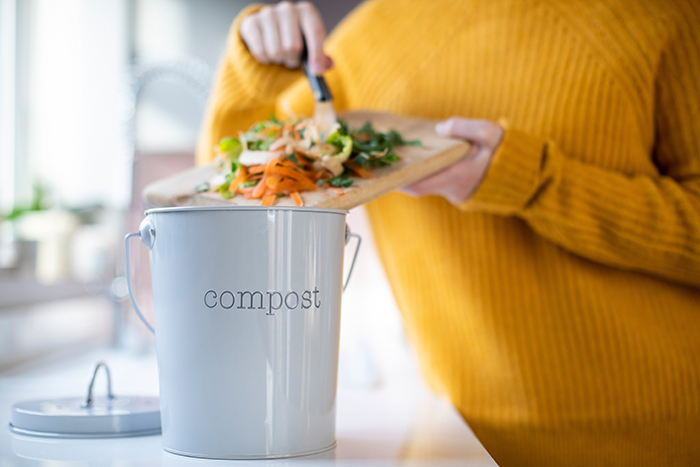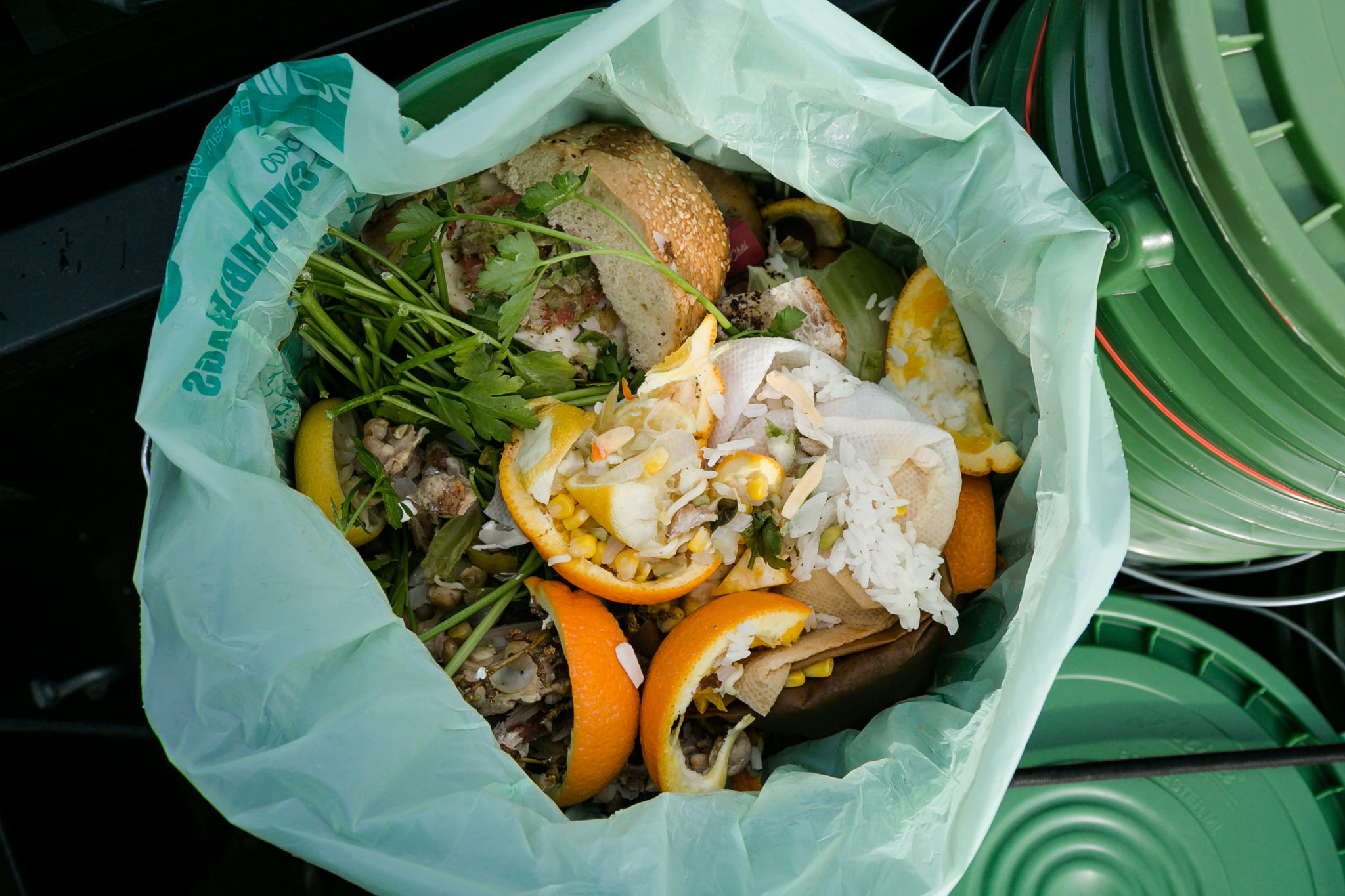
Getting Started with Home Composting
Madison Environmental Commission Shares Tips and Resources
Submitted by Michael Pellessier
The 50th Anniversary of Earth Day was held on April 22, but the Madison Environmental Commission (MEC) encourages people to celebrate Earth Day every day. It’s offering two ways to do so by composting at home: Java’s Compost can provide curbside pick-up of food scraps (including vegetation, meat, bones and dairy) if just 20 people from Madison preregister. Or you can compost right in your backyard.
“Either solution will reduce your environmental footprint significantly — and make your trash less smelly during the summer,” says Claire Whitcomb, MEC chair. “Plus, you’ll be rewarded with amazing, microbe-rich fertilizer for your garden.”
According to the Environmental Protection Agency (EPA), food scraps and yard waste make up more than 28 percent of what we throw away. Composting several benefits.
It keeps biodegradable materials out of landfills — where they release methane, a potent greenhouse gas that’s stronger than carbon dioxide and is a major contributor to climate change. “All organic matter eventually decomposes — but in a landfill it does so without oxygen,” explains Maureen Byrne, Madison Borough Council member and Council liaison to the MEC. “A head of lettuce, for example, takes 25 years to decompose in a landfill. Composting speeds the process by providing the ideal decomposition environment, reducing waste and methane.”
Composting also creates nutrient-dense organic material that enriches soil and reduces the need for chemical fertilizers, pesticides and herbicides. Adding compost to soil helps retain moisture, suppress plant diseases and pests, and grow healthier plants and more nutritious food.
For home composting, the recommended recipe is creating a compost pile with an equal amount of “browns” to “greens.”
Browns are dead leaves; branches, twigs and other wood material; paper; hay and straw. Greens are pesticide-free fresh grass clippings, vegetable waste, fruit scraps, and coffee grounds
Alternate layers and moisten materials as they are added. The browns provide carbon for your compost, the greens provide nitrogen, and the moisture helps break down the organic matter. Smaller pieces will break down more quickly, so tear or cut up larger pieces. Research different types of compost bins online to see what works for your needs and available space. Locally, the Farm at Green Village is selling a variety of backyard composters by request, including the kind that tumble. They can order one for you for pickup at their Chatham Township location. Email info@thefarmgv.com to inquire about available models and pricing.

(above) Example of a compost bucket
What to Compost
The Madison Environmental Commission offers a downloadable flyer that lists what can and can’t be composted at home. Compostable items include: coffee grounds and paper filters; cotton and wool rags; dryer and vacuum cleaner lint; eggshells; fireplace ashes; fruits and vegetables; grass clippings; hair and fur; hay and straw; houseplants; leaves; nut shells; sawdust; shredded newspaper; tea bags; wood chips; and yard trimmings.
What Not to Compost
Keep these 8 things out of your compost — for your own health and the health of your plants, and to prevent odor problems and pests: black walnut tree leaves or twigs – release substances that might be harmful to plants; coal or charcoal ash – might contain substances harmful to plant; dairy products (e.g., butter, milk, sour cream, yogurt) and eggs – create odor problems and attract pests such as rodents and flies; diseased or insect-ridden plants – might infect other plants; fats, grease, lard, or oils (whether animal- or vegetable-based) – create odor problems and attract pests such as rodents and flies; meat or fish bones and scraps – create odor problems and attract pests such as rodents and flies; pet wastes (e.g., dog or cat feces, soiled cat litter) – might contain parasites, bacteria, germs, pathogens, and viruses harmful to humans; and yard trimmings treated with chemical pesticides – might kill beneficial composting organisms.
Learn More
To learn more about home composting, visit epa.gov/recycle/composting-home or the Rutgers Agricultural Experiment Station website. For questions, you can also email the Madison Environmental Commission at mec@rosenet.org.

